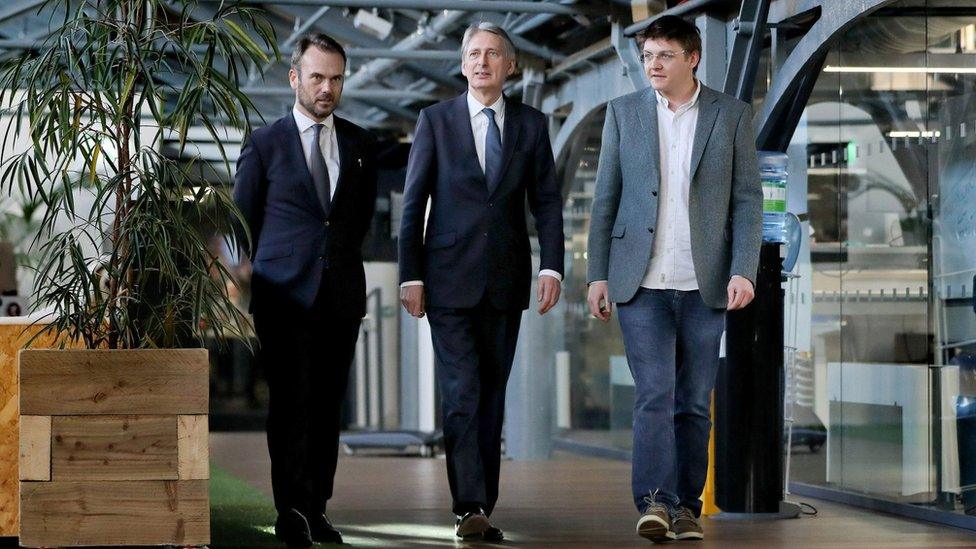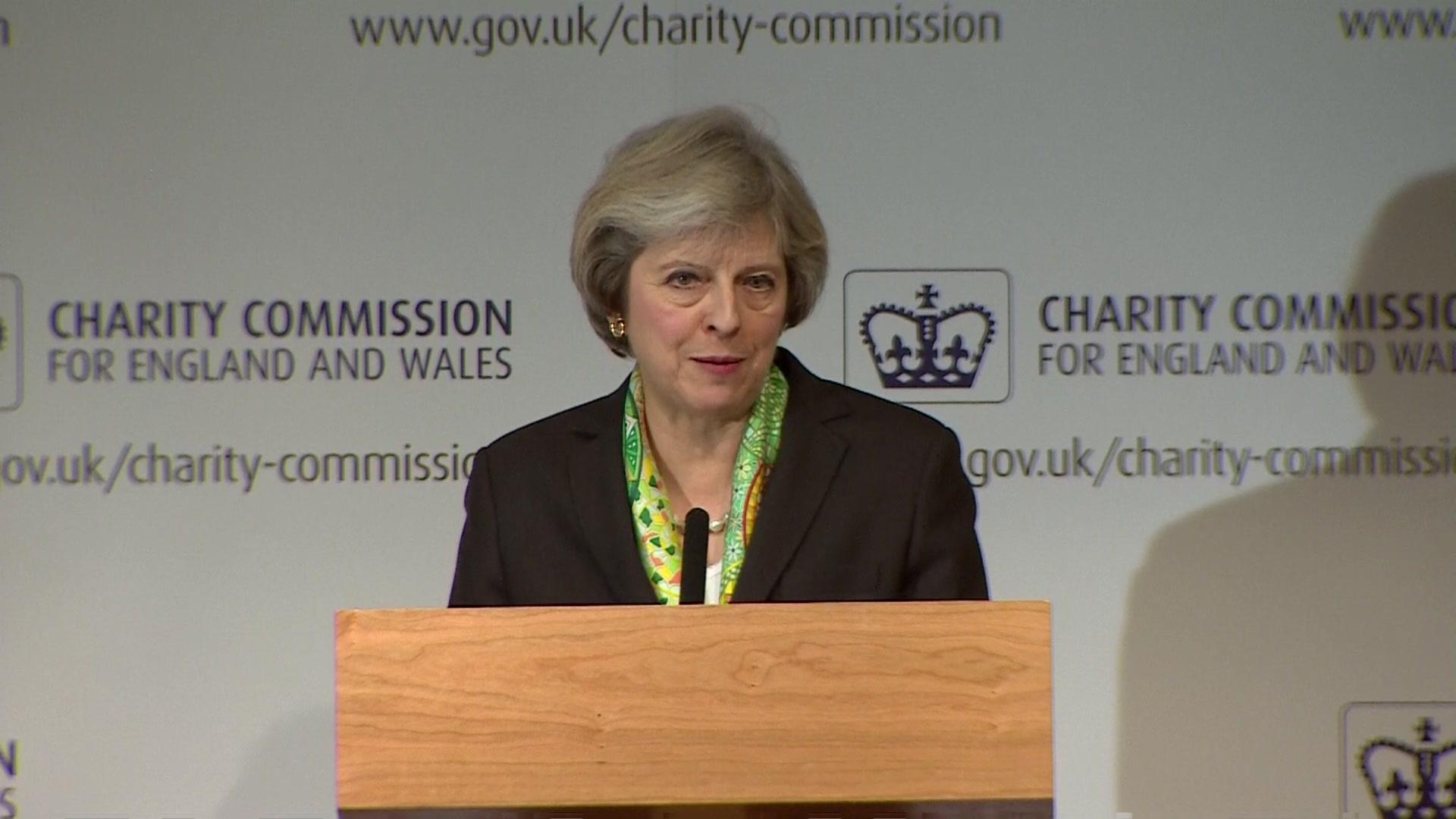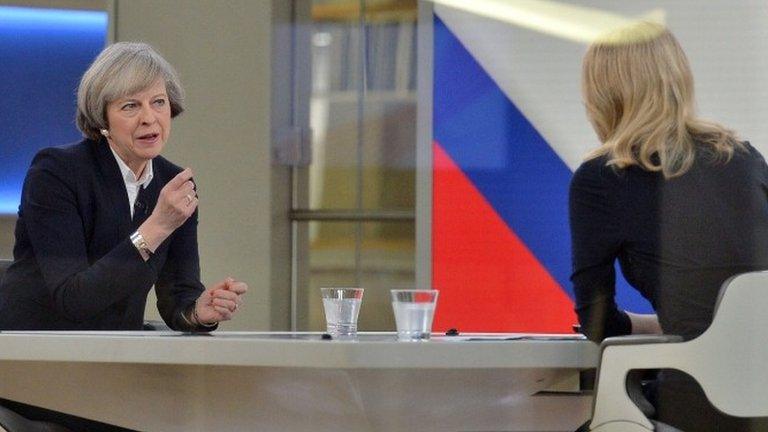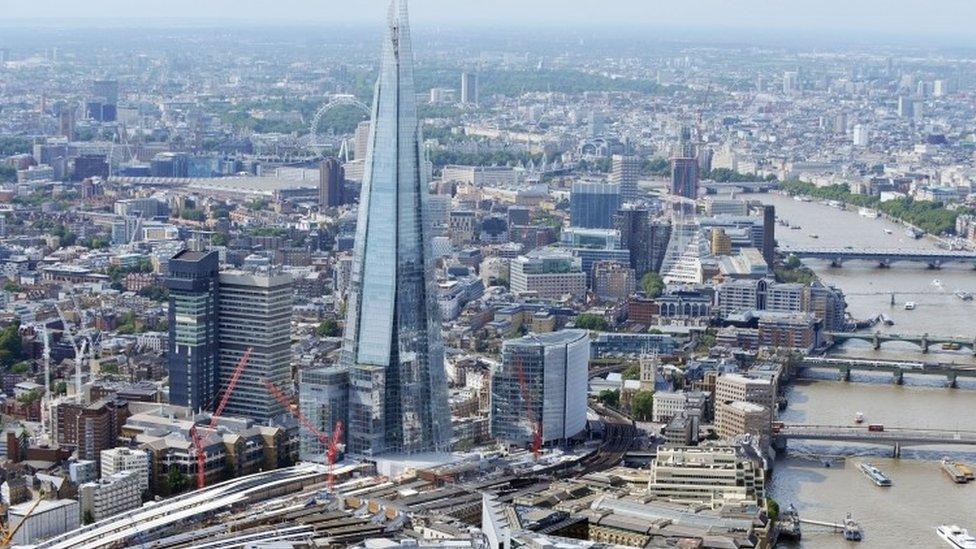Hammond: No decision yet on single market
- Published

Chancellor of the Exchequer Philip Hammond (centre) meeting Gerry Mallon, CEO of Ulster Bank (left) and Patrick Walsh, MD of Dogpatch Labs during a visit to Dublin.
Britain has not made any decision on whether or not to stay in the European single market after Brexit, says the UK Chancellor, Philip Hammond.
The chancellor made his comments in an interview with the Irish broadcaster RTE.
"We haven't made any decision on which structures would best support our aspirations," he said.
"Whether it is being in or out of the customs union, in or out of the single market," he added.
His comments came just a day after the Prime Minister, Theresa May, appeared to downplay the importance of the UK retaining any residual membership privileges from the European Union's single economic market.
First objective
Mr Hammond rejected the idea that the Brexit process had been badly handled so far, pointing out that it had barely started and that the UK government was preparing for a complex negotiation that would start in earnest later this Spring.
He did though state that he wanted, in an ideal world, to have a deal with the rest of the EU agreed in just over two years' time.
"If necessary we will have to discuss what the interim period should look like between Britain leaving the European Union and delivering those long term arrangements if we can't get them in place by April 2019," he said.
"But our first objective will clearly be to try to get everything negotiated and completed by April 2019."

Analysis by Kamal Ahmed, BBC Economics Editor
The chancellor appears to have delicately hardened his stance on any possible need for a transitional deal to smooth Britain's progress out of the European Union.
Before Christmas, Philip Hammond said that "thoughtful politicians" and officials on both sides of the Channel supported a longer time frame than provided for by the two-year Article 50 process.
"Having a longer period to manage the adjustment between where we are now as full members of the European Union and where we get to in the future as a result of the negotiations that we will be conducting would be generally helpful," he told the Treasury select committee.
He might still believe that is the case, but, in his interview with RTE tonight, that route certainly did not sound like the preferred option.
"Our first objective will clearly be to try to get everything negotiated and completed by April 2019," he said.
Many businesses, and certainly the finance sector concerned about the complexity of unravelling a 40-year-old relationship, believe that is simply not possible without significant damage to UK/EU economic relations.

The chancellor dwelt on the importance of negotiating a deal with the UK's 27 counterparts who will remain in the EU.
He said: "As we go forward we will also want to explore how we can get to a position where Ireland, Germany and France are able to carry on trading with the UK bearing in mind we run a huge trade deficit with our EU partners.
"But we want to keep our markets open to our EU partners, we want our companies to be able to access the markets of our EU neighbours in the future.
"Let's explore what the options are and how we can get out of this a win-win situation that delivers for the economies of the European Union and of the UK while respecting those political red lines," he added.
'Clear' on immigration
Mr Hammond also reiterated the government's view, emphasised by Mrs May, that regaining control of immigration policy was a top priority.
"We are clear that at the end of the process we have to be able to control migration into the UK," he said.
"That is a clear message, a clear mandate that we took from the electorate on June 23rd."
- Published9 January 2017
- Published9 January 2017

- Published8 January 2017

- Published6 January 2017
